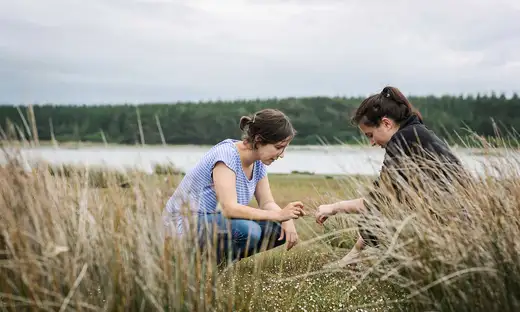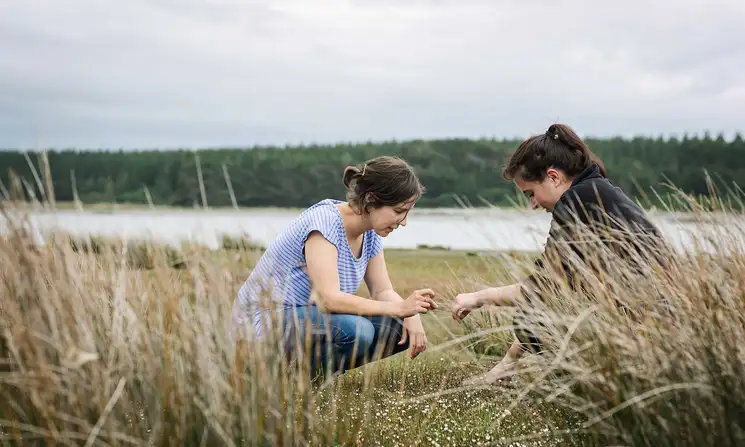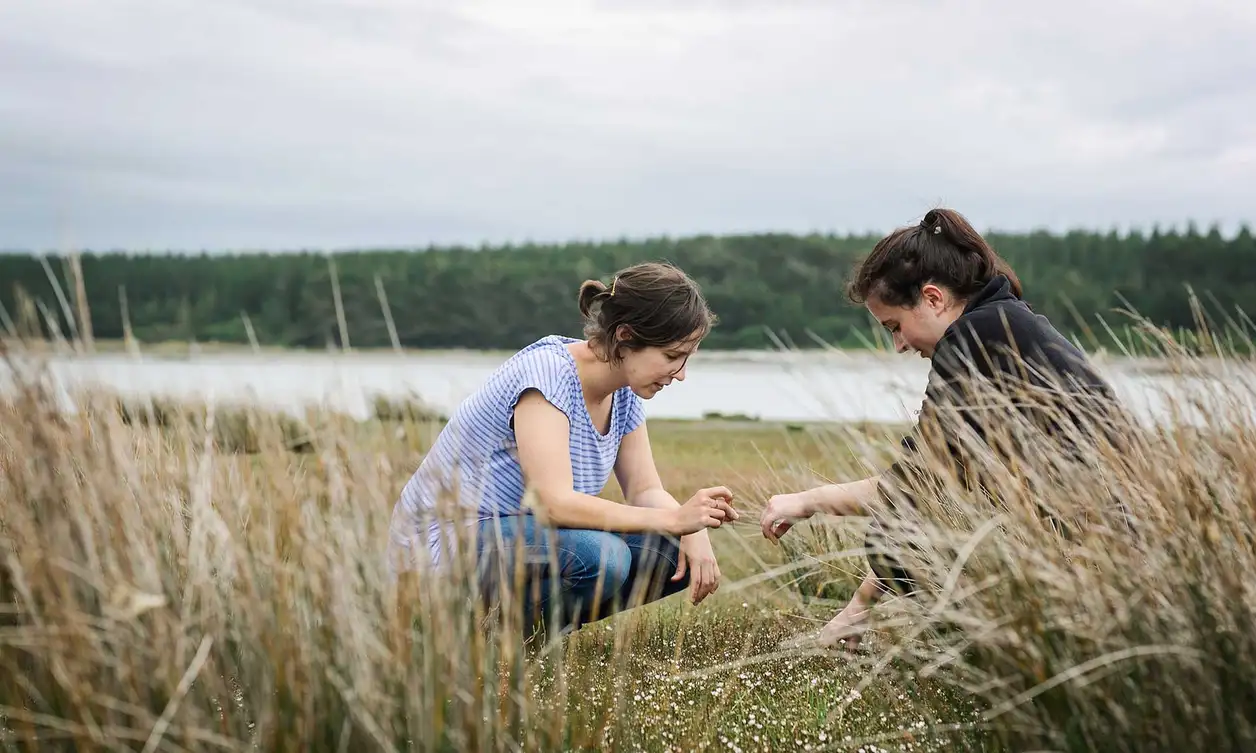Healthy work is rewarding, meaningful, interesting, ethical, of value and sustainable. Associate Professor David Tappin, Dr Natalia D’Souza and Dr Zoe Port from the School of Management are part of the Healthy Work Group, which was formed around the concept of better understanding of the conditions that contribute to poor workplace health and wellbeing, from which the design and undertaking of work can be improved. The group includes academic staff and postgraduate students from Management and Psychology. ‘We look at interventions for the avoidance of harm and the improvement of work, to create decent productive work, conducted with equity and dignity,’ says Associate Professor Tappin.
Workplace wellness is important – we want to create a healthier system
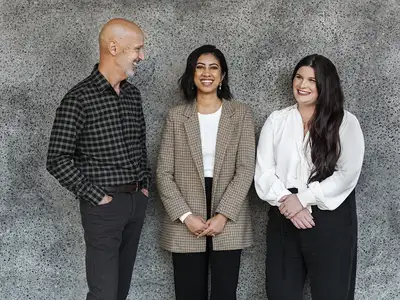
Healthy Work Group members, Associate Professor David Tappin, Dr Natalia D’Souza and Dr Zoe Port.
Although workplace wellbeing has become more prevalent in recent years, Dr Port points out that the more popular interventions do not usually go far enough. ‘We’re mindful that while the workplace wellness movement is important, we want to create a healthier system and not focus just on the individual. Let’s change the work in the first place so that we’re not all expected to be super resilient.’ Associate Professor Tappin agrees. ‘Initiatives that focus on what an individual can do are helpful, but they aren’t getting to the root of the problem and mostly provide symptomatic relief from stressors, whereas looking at the work system – things like recruitment, job design and management competencies – is likely to be more helpful.’
The team is carrying out a project, funded by the Health Research Council and WorkSafe New Zealand, to reduce psychosocial risk and thereby improve conditions for health and wellbeing in small and medium businesses in New Zealand. Twenty-four organisations were recruited across three sectors, and half of these participatively developed an action plan aimed at improving health and wellbeing in their organisations, with the others receiving no intervention to enable comparison.
‘We’re a bit over halfway through the intervention period,’ says Associate Professor Tappin. ‘There have been a few delays with lockdowns and the impact of the pandemic. But there are lots of interesting insights that are becoming apparent. It’s highlighting the complexity of dealing with psychosocial factors in a work context, because every situation is slightly different and it’s heavily nuanced by the style of management. But some of the factors that we see as important are around the level of control people have in their work, as well as workloads.’
One organisation, for example, is working on improving its processes for recruitment and induction of new staff, which will have an impact on how quickly, and with the least stress, people are able to undertake their work when newly employed. ‘It’s an example of a primary-level intervention that is aiming to make work more enjoyable and fulfilling,’ says Associate Professor Tappin. ‘There are other benefits at an organisational level in having a process that’s streamlined, but from a new employee’s perspective they are going into that work knowing what they are required to do, so they don’t get stressed about being in a situation they’re unfamiliar with. It will enable them to also have some sense of where they might want to go and creates a scaffolded learning process. It’s a way of making improvements organisationally as well as for individuals undertaking that work, both currently and in the future.’
‘Another area for improvement that we are seeing is in access to information,’ says Dr Port. ‘We’ve often come into an organisation and employees will say that they don’t know something or wish management would communicate with them, and management will say that the information is there, or they didn’t think employees would be interested. So access to information and open lines of communication are key because not having these will make your job harder and more stressful.’
Associate Professor Tappin agrees. ‘Worker voice and social dialogue are also important components of work that are sometimes missing. In principle, being able to have your say should be available to all, but this may not always be the case, dependent on the nature of the organisation and the awareness of people that these things exist.’
Dr D’Souza points out that those in control have a significant role to play. ‘If they’re really committed to making that change then that’s going to happen fairly quickly. It hinges on the attitudes and behaviours of people in positions of power. They have to really want to make work decent, and it has to be a conscious effort.’
To complement their research, the team has co-designed a third-year Decent Work course, which is an exploration of the principles, practices and issues surrounding decent work in contemporary work organisations. ‘It’s been a really nice link to some of the research that the Healthy Work Group does,’ says Dr D’Souza, ‘and it’s also great from a teaching perspective being able to share some of those insights as well.’
David Tappin, Natalia D'Souza and Zoe Port
Learn more about the researchers who are making work healthy and decent.
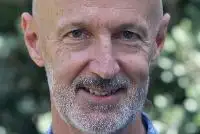
Associate Professor David Tappin
David teaches courses in HR/ER, Decent Work and Project Management and supervises postgraduate students. He is a co-director of the Healthy Work Group – a research team involved in evaluating and addressing psychosocial risks and interventions in work, and a member of the human ethics committee in Auckland.
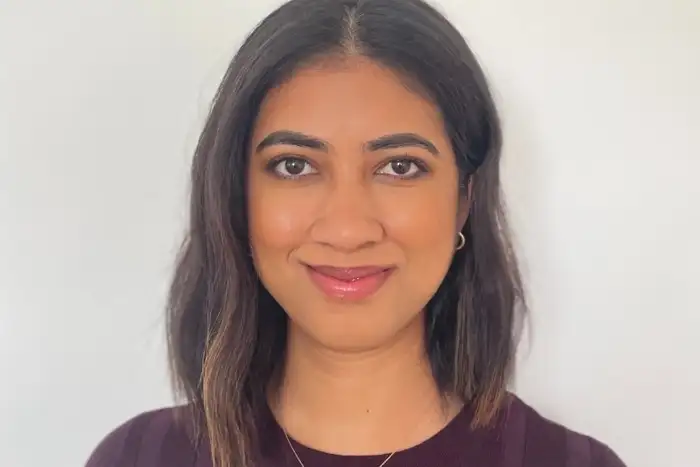
Natalia D'Souza

Dr Zoe Port
Zoe is a Co-Director of the Healthy Work Group research team and a named investigator on the externally-funded Healthy Work Project which seeks to develop, implement and test interventions to reduce exposure to work-related psychosocial hazards in small and medium-sized organisations.
Her PhD focused on exploring the heterogeneity and experiences of those who hold multiple jobs.






